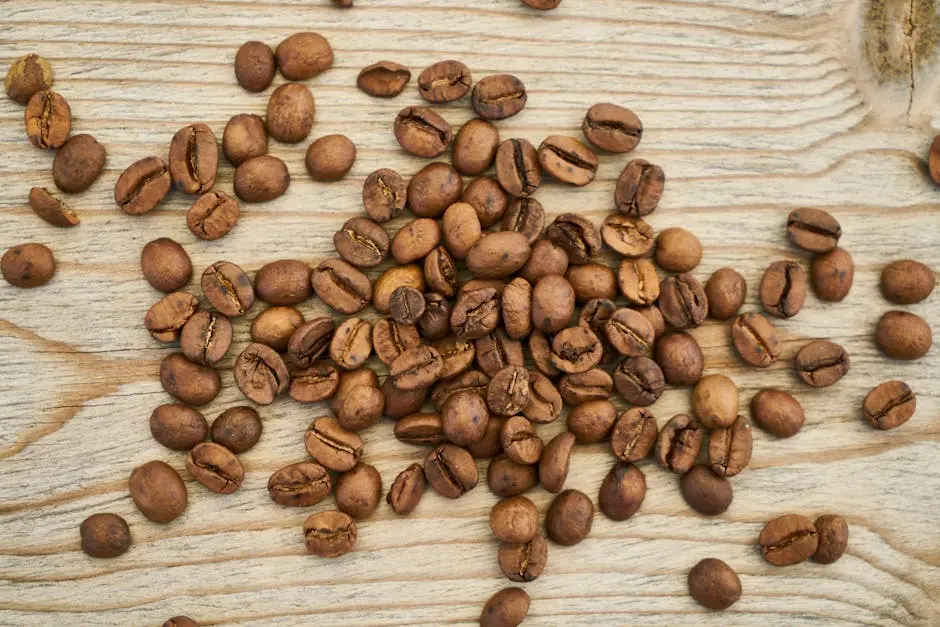Eco-Friendly Coffee Bag Choices for a Greener Tomorrow
In today's world, making sustainable choices is more important than ever, especially when it comes to our morning coffee. Coffee bags, in particular, present an opportunity to reduce waste and opt for eco-friendly options. In this blog, we'll explore the best choices for environmentally-conscious coffee bags, helping you enjoy your brew with a clean conscience.
Why Eco-Friendly Coffee Bags Matter
Coffee bags are often overlooked when considering sustainability, but they play a significant role in our daily waste. By choosing eco-friendly options, we can reduce the environmental impact of our coffee consumption. Traditional coffee bags made from non-recyclable plastics or mixed materials contribute significantly to landfill waste. Switching to biodegradable options allows bags to decompose and integrate back into the environment without leaving harmful residues. This is a crucial step in a broader movement towards an environmentally sustainable lifestyle. As consumers, this initiative gives us the opportunity to play a key role in advocating for greener practices by demanding more from the brands we love.
Eco-friendly coffee bags also have the potential to preserve the quality and freshness of the coffee. Many believe that eco-friendly materials might compromise the taste, but advancements in packaging technology prove otherwise. Sustainable packaging is designed to protect coffee beans from air and moisture, maintaining their rich aroma and flavor until they reach your cup. Moreover, this shift towards sustainability reflects a growing awareness among consumers and companies alike. By choosing green options, businesses gain a competitive edge and align themselves with the values of environmentally conscious consumers. In doing so, they can foster loyalty and enhance their brand.
Understanding Sustainable Materials
Eco-friendly coffee bags are typically made from materials like compostable paper, biodegradable plastics, or reusable fabric. These materials break down more easily and have a lesser impact on the environment compared to traditional alternatives. For instance, compostable paper bags not only decompose quickly but can also enrich soil post-usage when properly composted. This process contributes to a circular economy where waste becomes a resource, thus minimizing the need for landfill space and reducing greenhouse gas emissions resulting from waste decomposition.
Another promising material in the realm of eco-friendly coffee packaging is biodegradable plastic. Unlike conventional plastics that can take centuries to break down, biodegradable plastics decompose within a few months under the right conditions. They achieve this through the presence of microorganisms that break down the plastic into water, carbon dioxide, and biomass. However, it's crucial to note that the effectiveness of this material largely depends on the appropriate disposal and processing facilities available. Therefore, educating consumers about proper disposal practices is essential to harness their full potential.
Reusable fabric bags offer another fantastic option for reducing waste. Made from materials such as organic cotton or jute, these bags are designed for multiple uses, reducing the need for single-use packaging entirely. Their durability ensures the coffee remains fresh while providing an eco-conscious lifestyle choice. These fabric bags can be creatively branded and customized, allowing coffee brands to offer aesthetically pleasing packaging options that users are proud to reuse. Such options reflect a commitment to sustainability and craft, aligning with the values of customers who seek both quality and responsibility in their purchases.
Types of Eco-Friendly Coffee Bags
There are several options available, including compostable bags, recyclable bags, and reusable options. Each type has its benefits and considerations, depending on your needs and commitment to sustainability. Compostable bags, for instance, break down when disposed of properly and are an excellent choice for those seeking to minimize their environmental footprint drastically. However, they require certain conditions to decompose effectively, so be sure your local waste management can accommodate these materials.
Recyclable bags are another popular choice, allowing consumers to dispose of their coffee packaging in an environmentally friendly manner. These bags are often made from single-stream recyclables like paper or certain plastics, which can be processed by many curbside recycling programs. The advantage of this type is that recycling infrastructures are more widely established in various regions, making them an accessible eco-friendly option for many consumers.
Reusable options, such as steel or glass containers, are perhaps the pinnacle of sustainable choices because they eliminate waste entirely. Although they require a higher initial investment, these containers offer infinite reuse potential. Over time, this reduces the reliance on single-use products significantly. While these might be less common in retail settings, they are excellent for personal home use and can double as storage for other pantry items, making them both versatile and sustainable. In choosing the right type of eco-friendly coffee bag, consider your capacity to manage these materials and your local recycling or composting protocols.
Consumers need to be aware of the particulars of each packaging type. Labels such as 'biodegradable' or 'compostable' come with their own set of instructions and specifications—for instance, compostable coffee bags require specific composting conditions to break down completely. Evaluating these options in terms of local waste disposal capabilities and personal commitment to sustainability is crucial for making an informed choice.
Brands Committed to Sustainability
Many coffee brands are now offering eco-friendly packaging solutions. Companies like Coffee Bean & Co. and Green Brew have made significant strides in reducing their environmental footprint with innovative coffee bag designs. Their offerings not only feature compostable and recyclable materials but also highlight the importance of using non-toxic inks and adhesives in the production process. These initiatives ensure that even the smallest details align with sustainability goals.
JD Brews Coffee Company stands out by incorporating sustainable materials into its operations while maintaining the quality of their delightful single-origins selections. With a commitment to both environmental preservation and exceptional flavor, JD Brews offers customers peace of mind knowing they are supporting a brand dedicated to sustainability and quality. Their transparency in the sourcing and packaging processes assures customers that each purchase is a step towards a greener tomorrow.
While larger brands have the resources to make these changes, smaller coffee companies are also utilizing creative ways to join the green movement. Some collaborate with packaging companies spearheading eco-friendly innovations to find solutions tailored for their products without compromising the coffee's integrity. By selecting brands prioritizing sustainable packaging, consumers naturally support and encourage further advancements in environmental stewardship. It's a powerful way to exercise your consumer power and drive market changes.
How to Make the Switch
Transitioning to eco-friendly coffee bags is easier than you think. Start by researching brands, checking for certification labels like Fair Trade or Rainforest Alliance, and gradually replacing your current stock with sustainable options. Certification ensures accountability and quality in sustainable practice, giving you confidence in your purchase choices. As you explore these greener options, you'll find that they are just as effective at protecting flavor and ensuring the longevity of your beans compared to traditional packaging.
Learning about the changes you can make is a great first step. By understanding the benefits and availability of eco-friendly materials, you equip yourself to make informed choices that align with your values and broader environmental goals. The transition can begin with small substitutions—perhaps opting for compostable bags for daily use or using reusable containers for storage. Over time, integrating these options into your routine reduces your overall waste and encourages more significant changes.
Consumers can also engage in communities and forums online to share their experiences in switching to sustainable coffee bags. By exchanging tips and product recommendations, these platforms offer practical insights and support through your transition. Participating in such discussions fosters a collective movement of conscientious coffee consumption—a reminder that every change, no matter how small, contributes to a more sustainable world. As greater numbers embrace eco-friendly options, it strengthens demand, driving companies to innovate and provide more accessible solutions.
Sip Responsibly for a Better Tomorrow
Choosing eco-friendly coffee bags is a simple yet impactful way to contribute to a greener tomorrow. By understanding the materials and options available, and supporting brands committed to sustainability, we can all play a part in reducing waste and making our coffee habits more environmentally friendly. Let's sip our coffee responsibly, one cup at a time.


